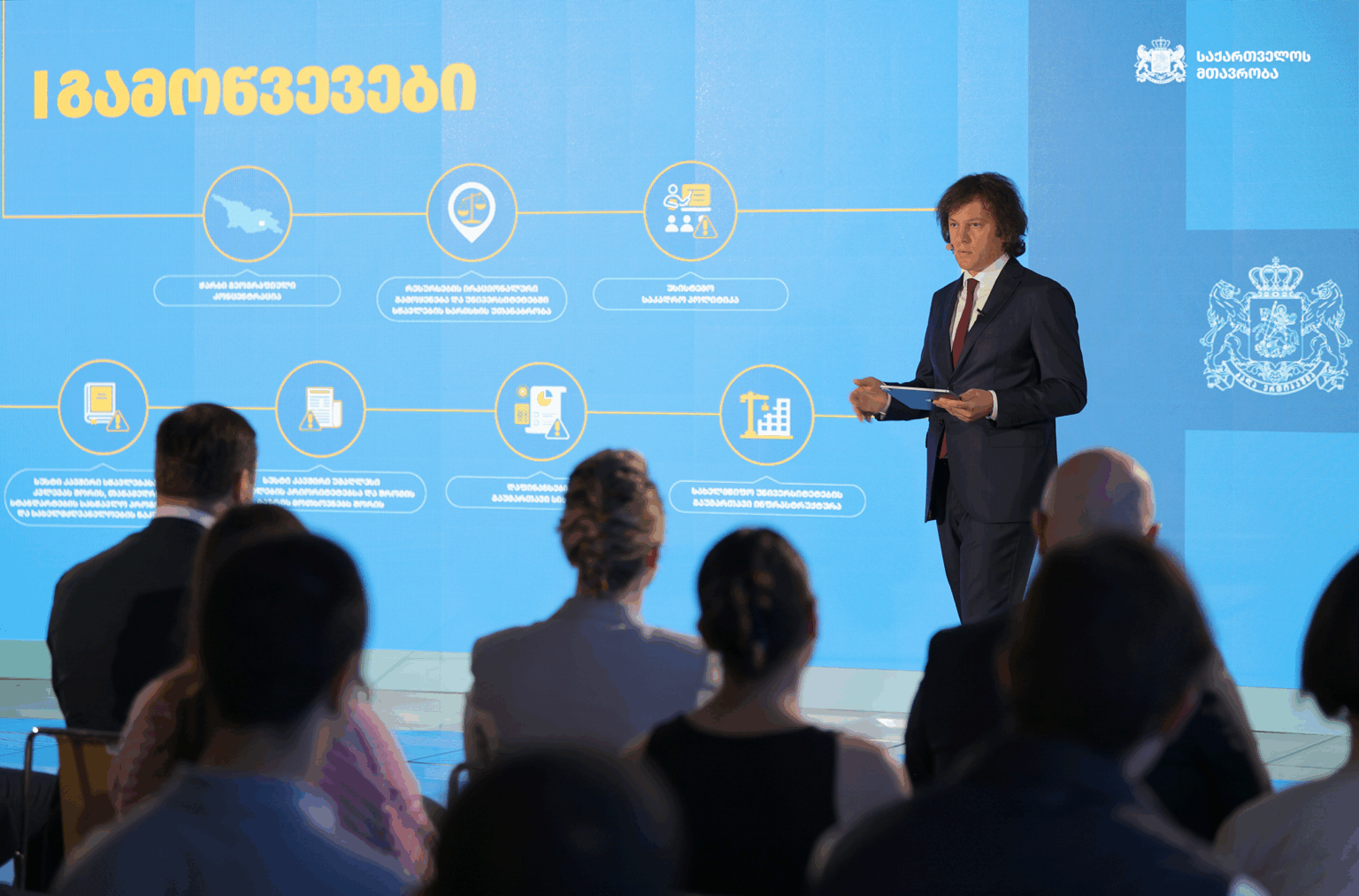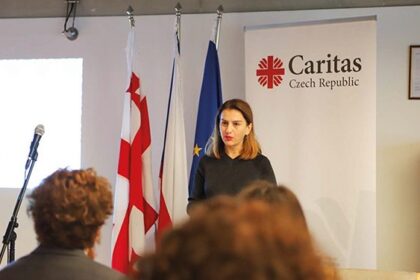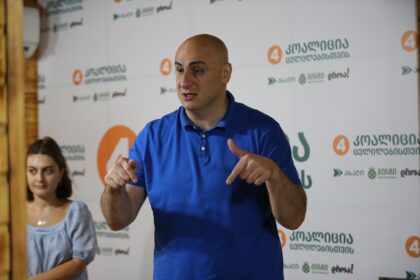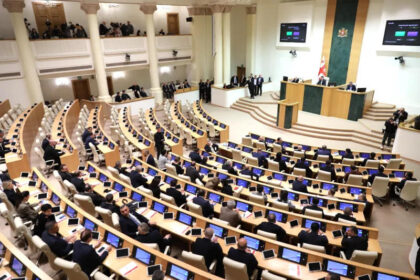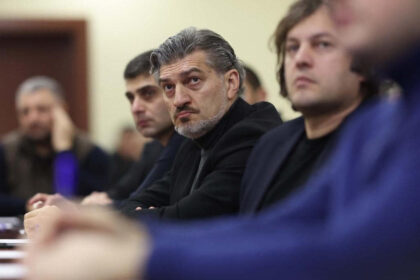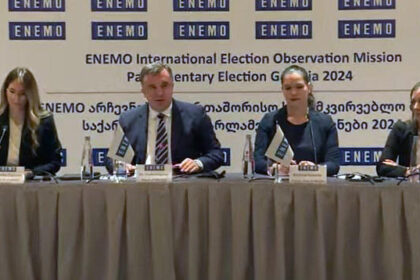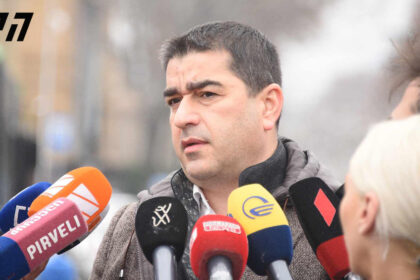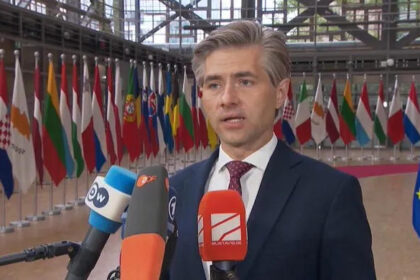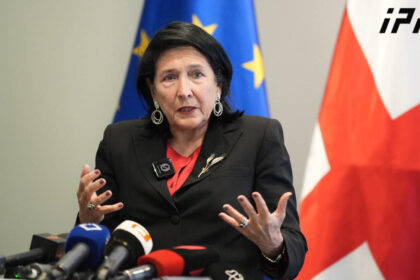Georgian Dream Prime Minister Irakli Kobakhidze unveiled the long-anticipated university reform concept on October 16, sparking concern among critics about potential purges in state universities and the risk that the new system could undermine international study opportunities for Georgian students.
Among the announced plans are the deconcentration of higher education from the overcrowded capital, the introduction of a “one city – one faculty” principle that would leave only one faculty per state university in each city through a process of “reorganization,” as well as reducing the length of schooling from the current 12 to 11 years and transforming the existing 4+2 Bachelor’s and Master’s model into a 3+1 system.
Kobakhidze said the university reform concept will be approved first by the “government commission” and then by the government itself, following public discussions. He later told Imedi TV that the consultations are expected to last “two to three weeks,” after which the final approval and implementation will follow.
“Radical, principal steps must be taken in terms of university reform to achieve a qualitatively different system of higher education in our country, which would be compatible with modern standards,” Kobakhidze said.
Challenges and Objectives
Kobakhidze started his presentation by stressing the need to address key seven challenges Georgian higher education system is facing which he listed as: excessive geographic concentration of universities; irrational use of academic resources and uneven teaching quality; disorganized personnel policy; weak links between teaching and research, including a lack of modern programs and textbooks; poor alignment with labor market needs; a mismanaged funding system; and inadequate infrastructure in state universities.
Kobakhidze then outlined “seven main objectives” to address these challenges. To promote what he called “geographic deconcentration,” he proposed establishing a “second basic university hub” in the western city of Kutaisi, which, he said, should be able to accommodate an additional 20,000 students. He also pledged to expand opportunities at regional universities across other Georgian cities.
To tackle what he described as the “irrational use of academic resources and uneven teaching quality,” Kobakhidze proposed introducing a “one city – one faculty” principle. In Tbilisi, for instance, “each faculty will be established in only one state university,” he explained, noting that this would “naturally require reorganization and redistribution of faculties among the universities.”
He then turned to what he called “the problem of foreign students in state universities,” arguing that “state universities should be fully oriented toward meeting state objectives.” According to Kobakhidze, “state universities must accept foreign students only in strictly exceptional cases defined by law.”
Discussing the length of study programs, Kobakhidze said the authorities had “carried out certain analysis” and concluded that, with some exceptions, Georgia should switch to a 3+1 system – three years for Bachelor’s and one for Master’s studies. “Three years are fully sufficient for almost all specialties,” he said. Kobakhidze also proposed reducing the duration of school education from the current 12 years to 11.
Further reform plans addressed personnel policy, with Kobakhidze proposing that full-time professors form the core of universities. Under the plan, each department would be led by a full professor, working alongside roughly 2-3 associate professors and more than 10 assistant professors. Kobakhidze argued that this structure would improve working conditions for faculty, adding that the minimum salary for a full-time professor should be 10,000 Lari (around USD 3,700), plus fees from additional academic activities.
He also proposed strengthening research institutes, overhauling academic funding systems, introducing new textbooks, revising the state grants system for universities, and building new academic infrastructure across Georgia.
Critics Worry About Purges, International Education Prospects
Kobakhidze’s announcements raised concerns among critics, particularly over the “one city – one faculty” principle, with fears that such “reorganization” could be used, as in the past with the civil service, to purge universities from academics critical of the ruling party.
“The goals of Irakli Kobakhidze and Georgian Dream include gaining greater political control over universities and, as has now become apparent, over schools as well,” said Simon Janashia, an education expert and member of the Freedom Square movement, on October 17.
Kobakhidze later dismissed the concerns, telling the pro-government Imedi TV channel on October 16 that the reforms are not intended to lay off professors. On the contrary, he said, universities will need to attract more academic personnel. “Additional resources are needed for this reform to be successfully implemented,” he said on Imedi Live. “That’s why nobody should create false expectations and fears with speculations.”
Critics also warned that cutting school education to 11 years could limit Georgian students’ opportunities to study abroad, noting that previous reforms had introduced the 12-year system to remove such barriers, among others.
Responding to these concerns, Kobakhidze cited emigration risks, saying, “When young people go to study abroad from the first year, a large portion of them remain to live abroad. Why should we artificially encourage migration?”
The Georgian Dream Prime Minister, however, insisted that the authorities were not creating any “barriers.” “If anyone wants to complete the twelfth year, we can provide that opportunity within the country as well,” he said. “But every young person also has the option to complete the 12th grade abroad and then continue higher education from the first year.”
The new reform concept comes amid Georgian Dream’s broader crackdown on dissent and persistent claims by ruling party officials about the lingering influence of the former ruling party, the United National Movement (UNM), in universities, including state institutions. In previous years, GD leaders have repeatedly criticized UNM-era reforms as attempts to “mold a new Georgian” and as “experiments on our youth.” Private universities have also faced scrutiny from officials and pro-government media, accused of mobilizing revolutionary-minded students, among others.
Kobakhidze Cancels Meeting With OSCE Chair, Saying She Attended ‘Illegal Rally’
Kobakhidze Unveils University Reform Concepts As Critics Worry About Repression
